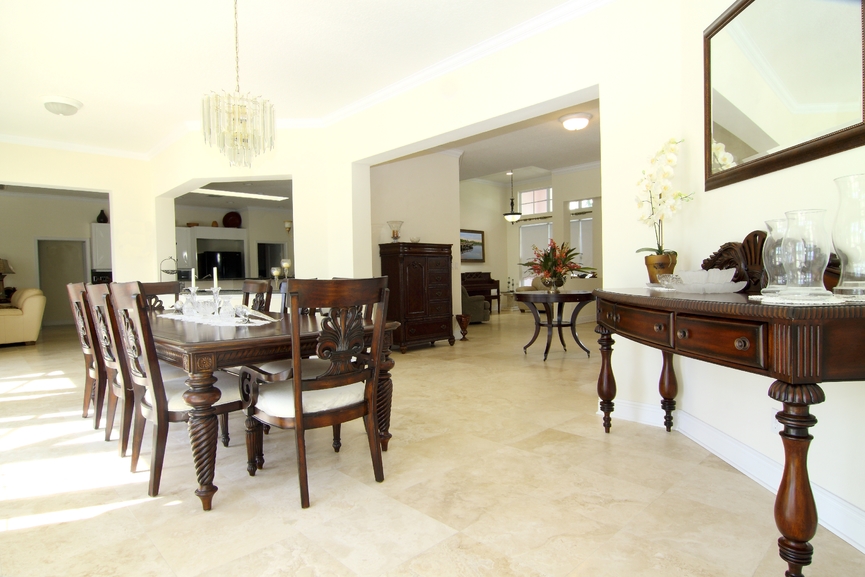If you have not heard of travertine, you are not alone. It is the unsung hero of natural stones, technically a form of limestone known as calcium carbonate. Many homeowners know about granite and marble, but travertine has remained under the radar — unless you or your designer are in the know about the many types of available natural stones that are ideal for building. Travertine forms after minerals dissolve in ground water and are then shifted by rivers or springs. It is harvested in quarries in big blocks, and then sliced into smaller, more manageable pieces.
In Turkey and Italy, this gorgeous natural stone has been used for centuries. Today, it is a favorite for those with discerning taste looking for a unique flooring, backsplash or countertop option. Unlike some other stones, travertine comes in nearly every hue imaginable, including gold. It all comes down to how much iron is in the slab. Plus, manufacturers offer a variety of finishes like tumbled, matte, polished or brushed. It may look a little like marble, but if you choose a tumbled or brushed finished, it looks more like a rare antique.
Stone Fox
The good news is that this stone is much easier to mold and cut than other stones, which means it is simpler to customize, and you may even save some labor fees when buying from a manufacturer. However, it has pros and cons, just like any other natural material. Here is what to consider before you fall in love with travertine. First, it is clear that travertine is gorgeous, but that is not the extent of its benefits. Compared to porcelain tile, it is much easier to find a replacement that will blend in with the rest of the tiles effortlessly — with porcelain, you’re put on an impossible treasure hunt.
Travertine is great for filling up spaces that are unique or small compared to porcelain. It is also eco-friendly and a 100 percent natural product, whereas porcelain and laminate are not. On the other hand, travertine requires more TLC, and you must put a protectant on it (just like any stone) to keep it clean and secure. It is a porous material, like all stones, so bear that in mind.
Keeping Care
Travertine does not do well with acidic materials, and even orange juice can cause a severe stain. And you must consider the cost as well. Like all stones, it is more expensive than a man-made material, but many homeowners think it is worth the price tag.
Only you can decide if travertine is right for you, but homes with small kids or pets may want to steer clear until the nest empties. Don’t worry though, gorgeous new travertine floors or counters are a great distraction when the family downsizes. If you are interested in kitchen counters or floors made of travertine or another type of stone, contact Intermountain Stone and Marble of Salt Lake City.


